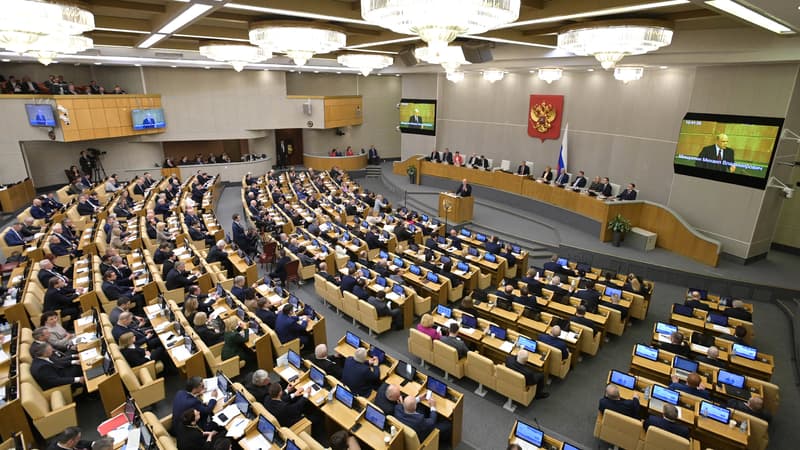Russian deputies approved this Thursday in first reading the 2025-2027 budget bill that provides for a 30% increase in military spending next year, while the Kremlin continues its policy focused largely on the war effort.
In the Duma, the lower house of Parliament, 314 deputies voted in favor of the three-year budget, 78 abstained and one voted against, according to official results. The text, whose second reading is scheduled for November 14, must then be approved by the Federation Council (upper house) before its promulgation, which leaves no room for doubt, by President Vladimir Putin.
The Kremlin repeats it every day: its attack on Ukraine, launched in February 2022, will be successful, whatever the economic and human costs, and this despite Western support in kyiv. Thus, Vladimir Putin was clear in September: “Strengthening the country’s defense capacity” and the “integration of the occupied Ukrainian regions” are “priorities.”
Around 40% of the budget is dedicated to Defense and Security
To this end, the Kremlin has decided to continue its heavy investments in the army. According to the bill, defense spending will reach almost 13.5 trillion rubles (130 billion euros at the current exchange rate) in 2025. The national military budget had already soared in one year by almost 70% in 2024, This year, investments in security represent 8.7% of GDP according to Vladimir Putin, a novelty in the modern history of Russia.
Since 2022, the Kremlin has largely reoriented its economy toward the war effort, rapidly developing its military-industrial complex, including hiring hundreds of thousands of new employees. The Kremlin foresees a long conflict with Ukraine and does not seem concerned about the risks of greater dependence of its economy on military orders, at a time when inflation, higher than 8.6%, reduces the purchasing power of Russians. .
The budget dedicated to internal security, which includes the police and special services responsible, in particular, for repressing criticism of the Kremlin, will increase to 3,460 billion rubles (33 billion euros), which represents almost 10 % of annual spending of the Russian State. This Defense-Security combination will represent approximately 40% of the budget. Not to mention numerous classified investments.
Structural economic problems
In a sign that military spending is unwilling to slow down, Vladimir Putin signed a decree in mid-September ordering a nearly 15% increase in the number of soldiers, bringing it to 1.5 million. With this new increase, 1 in 50 active in Russia will now be in the army which, according to Russian media, would become the second largest in the world after China’s.
To “effectively” manage the army’s accounts, where corruption remains endemic, Vladimir Putin sidelined several officials, imprisoned on bribery charges, and appointed an economist, Andreï Belooussov, head of the Ministry of Defense in May. In total, federal spending will increase in 2025 to 41.5 trillion rubles (about 400 billion euros). To complete its growing budget, the government plans to increase taxes on high incomes and businesses on January 1, a way to continue financing the offensive in Ukraine and its related expenses.
But structural problems still persist in the economy. In addition to inflation, labor shortages, a direct consequence of the departure of hundreds of thousands of men to the front or abroad, persist and “limit” growth, according to Vladimir Putin’s own admission. However, the situation remains sustainable in the short term. The IMF also revised upwards its growth forecasts for Russia for the end of the year on Tuesday, up to +3.6%.
Source: BFM TV


